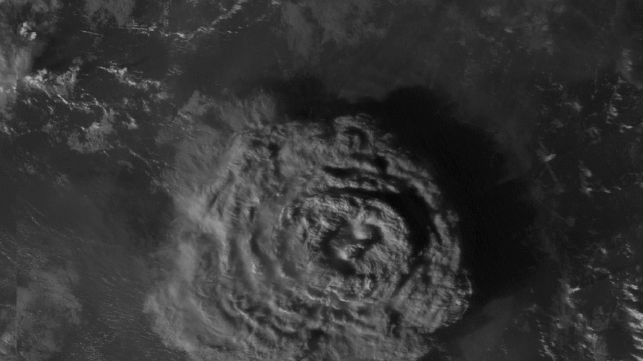Volcanic Explosion in Tonga Prompts Tsunami Warnings Across Pacific

Over the weekend, a subsea volcano in two uninhabited islands of the Kingdom of Tonga, forced countries sharing the Pacific coastline to pay attention.
The volcano named Hunga Tonga-Hunga Ha’apai has reportedly been having a modest eruption for several weeks. However, on Saturday, it erupted in a colossal explosion, sending an ash cloud skyward and a ripple of water surging outwards. This put several countries in the South Pacific islands on high alert for tsunami events. Met agencies in Australia, Japan, New Zealand and USA also reported large waves along their pacific coastlines.
Tonga’s main island, Tongatupu, experienced a tsunami immediately after the explosion. The volcano lies just 40 miles north of the nation’s, Nuku’alofa, and more than 105,000 residents in the city were virtually unreachable after the explosion cut off telephone and internet connections. No casualties have been reported yet.

In New Zealand, the emergency management department issued an advisory on tsunami activity, especially along the country’s north and east coasts. It forecast strong currents and unpredictable surges along the shorelines of the affected areas. The US West Coast also experienced large waves starting on Saturday, but tsunami advisories had been lifted by Sunday.
In Peru, where authorities declined to issue a tsunami warning, two women were killed when a wave struck their truck, according to local media.
Additionally, the tsunami effect that the eruption caused could indicate that Hunga Tonga's extensive caldera - a crater-like depression around three miles across - is deepening. The volcano’s small eruptions in 2009 and 2014/15, mainly took place at the edge of the caldera. The big ones, like the one that happened over the weekend, have originated in the caldera itself.

that matters most
Get the latest maritime news delivered to your inbox daily.
“Tsunami are generated by coupled atmospheric and ocean shock waves during an explosion, but they are also readily caused by submarine landslides and caldera collapses,” elaborated volcanologist Prof. Shane Cronin in an article in The Conversation.
Researchers cannot rule out that the explosion is yet over. Previously, the caldera eruption episodes have involved a series of explosive events.
